Babbel Review - A Good Resource for Beginners | 2024 (with Product Photos)
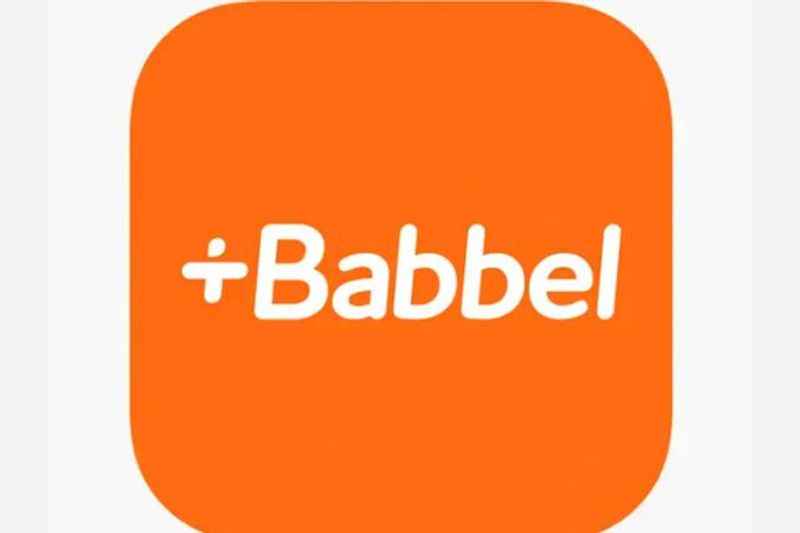
In this Babbel Review, you will see a comprehensive overview of Babbel Spanish and its course features. Babbel is an excellent supplemental resource but it should not be the only method you use to learn a language online.
While it will definitely help you, it will not take you from complete beginner to fluency. This is due, mostly, to its focus on early-stage language learners and the lack of resources for upper-intermediate and advanced learners.
Babbel has amazing language learning programs for beginners. The launch of Babbel Live, which connects learners with tutors, is a welcome addition to its features.
Quick Babbel Review For Beginner Learners

Now, before we start with details about the Babbel grammar lessons and which language course will suit your needs best, let's look at some quick pros and cons for this platform. Based on the Babbel Spanish course, this is a brief overview:
Babbel Pros
- One of the Cheapest Options
- Multiple Languages Available
- User-friendly on Desktop & App
- Listening & Speaking Exercises
Babbel Cons
- Not Great for Intermediate or Advanced Learners
- Not Enough to Take You to Fluency
This Babbel review is pretty extensive. If you’re looking for something specific, just use the menu below to skip to whichever section has the info you require.
Babbel 101
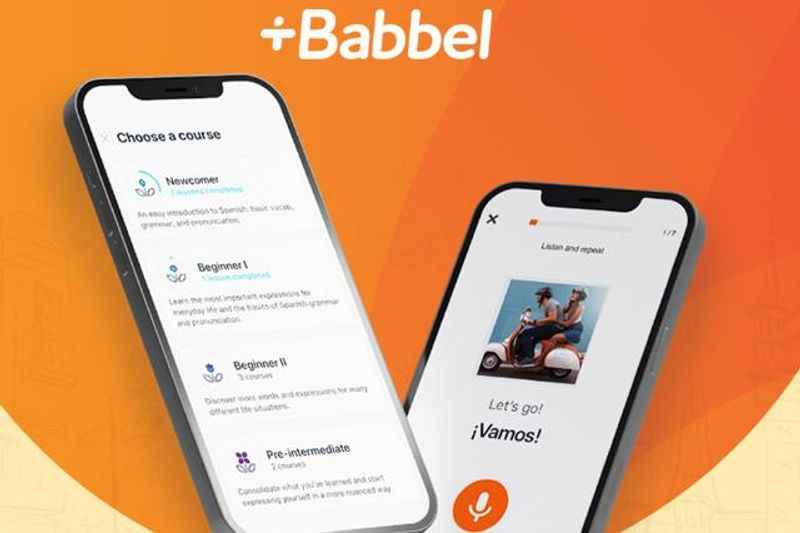
Babbel is a subscription-based language-learning app that helps you learn a new language. It currently offers 14 languages on its unique, user-friendly platform. Babbel’s desktop and app format is curriculum-based with pre-recorded content including games, quizzes, tests, games, and grammar exercises.
Until very recently, there was no live interaction involved on the Babbel platform, hence the app did not score well on any Babbel review that we had read previously. However, with the introduction of Babbel Live, premium members can now book classes with tutors for all offered languages.
Whilst this is a great and welcome addition, face-to-face online language classes are still cheaper through sites like italki and Preply. But it looks like this is going to change quite quickly.
What to Expect From this Babbel Review
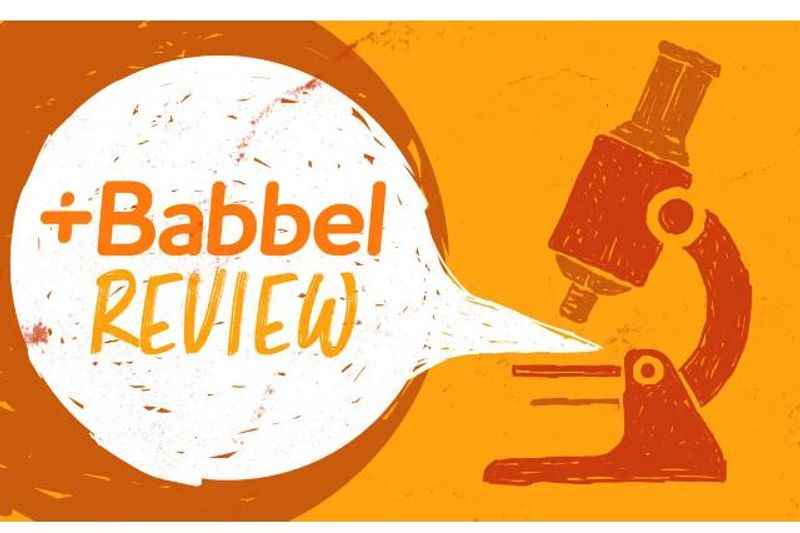
In this Babbel review, we will discuss the main features of the Babbel platform and, by discussing what you get for your money, seek to answer the question being asked by people all over the world who are interested in learning a foreign language - is paying for a subscription with Babbel really worth it?
In short, yes. All good language learning apps are worth it especially if you plan on traveling soon. Babbel teaches you to read, write, listen, and speak in a foreign language, which on paper seems like excellent value taking into account its low prices.
The longer answer is that it really depends on your main language goals, your experience to date with language learning, and which other language resources you are going to use. The truth is that there are plenty of other language options out there.
Each one takes a slightly different approach and teaches languages in new or different ways.
The Reason Why Babbel is So Popular in 2024

As you well know there are so many other language-learning apps and many of them are actually good but why is Babbel so popular right now? Few language learning online resources make as much noise as Babbel.
Its branding is absolutely everywhere, with adverts appearing more and more frequently on the TV, all over Youtube (if you follow content related to language learning), and across multiple language-related blogs and websites.
Babbel’s marketing efforts are obviously proving successful. We’ve all heard of the site and we are all curious to try it out.
In September 2020, Babbel announced it had reached 10 million subscribers. Some milestones - that’s a lot of language learners. So, the Babbel courses must be doing something right…
Who Can Use Babbel?

Babbel is used by language learners of all levels but it is best suited to beginners who are just getting started with learning a new language.
Babbel’s approach is almost entirely software orientated (with minimal live interaction). Unless you are using Babbel Live, all learners receive exactly the same service.
For this reason, Babbel makes its pricing affordable. It is one of the cheaper options for language learners. In particular, Babbel is an ideal option for people looking to learn vocabulary or receive an overview of grammar.
Babbel Languages
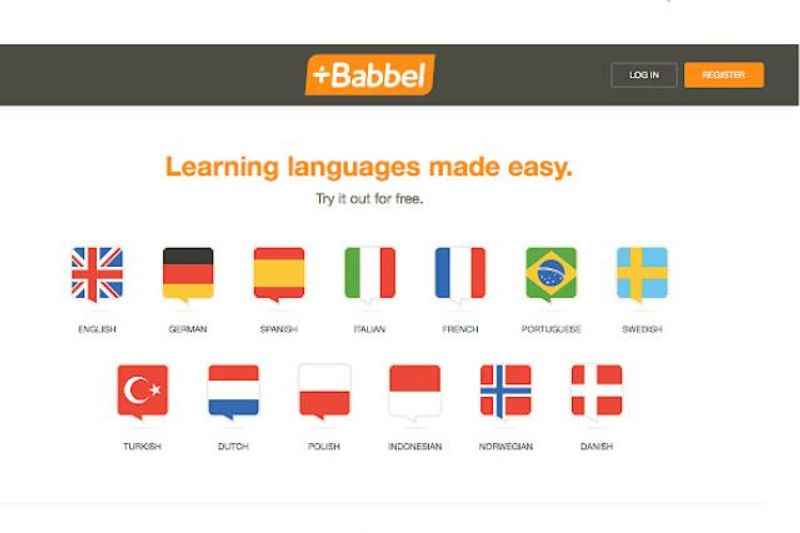
Babbel currently provides online language courses in the following 14 languages: Spanish, French, German, Italian, Portuguese (Brazilian), Polish, Russian, Dutch, Turkish, Danish, Norwegian, Swedish, Indonesian, and English
Currently, Babbel does not offer language courses in Japanese, Chinese (Mandarin), or Arabic. But it looks like they are looking for native speakers from those countries so who knows, maybe soon enough we will have a Japanese Babbel review as well.
Babbel App Features
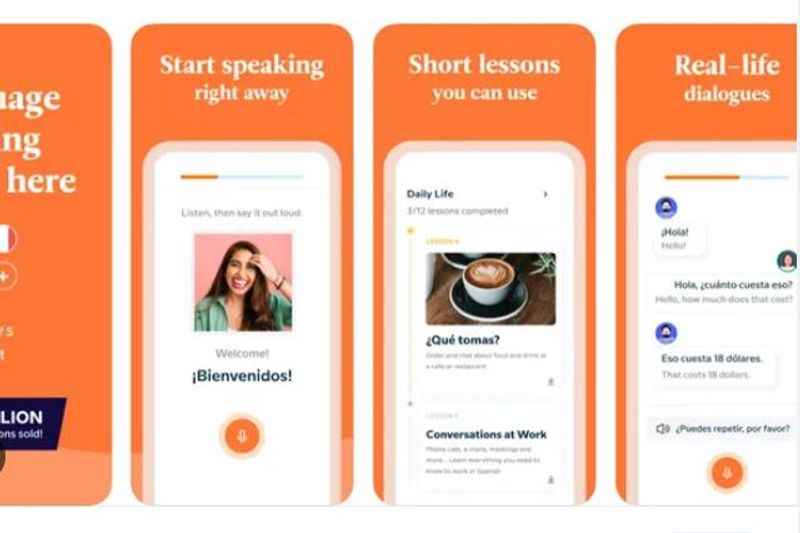
The following review is based on the Babbel experience on both the desktop and mobile app. As any Babbel review will tell you, both forms are pretty similar to Duolingo (another language-learning app we’ve all heard of and often compare to Babbel due to the similarities).
Like Duolingo, there is a lot of emphasis on its visual aspects - bright colors and strong branding. It’s for this reason that Babbel is very popular with visual learners.
Despite this, Babbel and Duolingo are actually very different and the Babbel dashboard is a testament to this.
There are a number of features on the Babbel dashboard that are very positive. You can track your activity, log your linguistic achievements, set weekly goals and take part in Babbel challenges with other language learners.
However, there is one new feature in particular on the Babbel app that takes it to the next level and sets it apart from its competitors.
Babbel Live - Making This Babbel Review Positive
Babbel has recently introduced Babbel Live, which enables learners to access live classes in small groups taught by a native speaker.
At first glance, this is an excellent feature. While introducing Babbel Live, Babbel addressed the biggest hurdle that faces online language learning companies - a lack of human interaction.
The feature overcomes this obstacle by placing learners into classes to engage with teachers, and other learners, in the target language.
Babbel provides its subscribers with 5 free classes/month, available around the clock, 24/7, from anywhere in the world, in any language. The seminar content you see as part of Babbel Live depends on the language you are signed up to learn.
The content seems to be a lot more varied and interesting than that of the Babbel courses, ranging from Speaking About Travel at the Beginner level to Feminism in Spain at an advanced level.
Babbel Live sets Babbel apart from its competitors, becoming a hybrid of online language software and face-to-face virtual interaction.
Babbel Course Structure
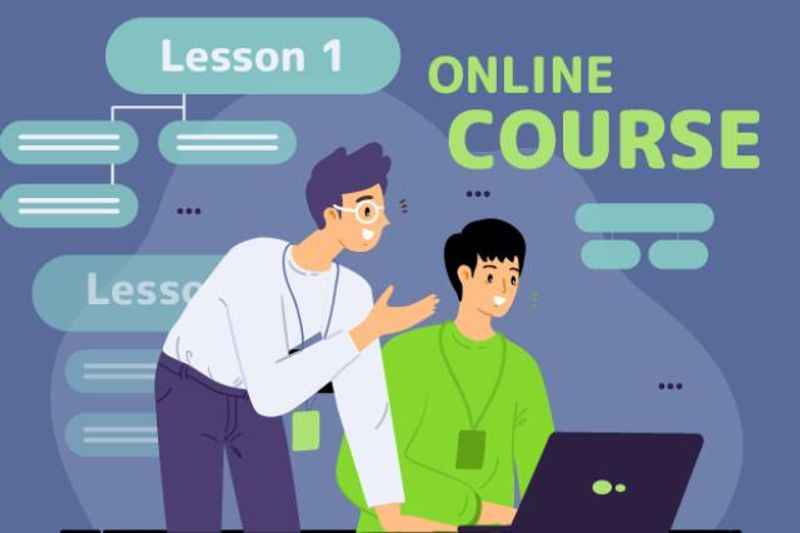
Babbel puts its learners onto a clear and concise language path. Each course contains lessons that you are supposed to follow in a specific order unless you opt to do otherwise.
Babbel has a useful feature that helps you figure out what your language ability level is through a placement quiz. This way, you can skip ahead if you need to.
It asks you questions such as whether you can introduce yourself simply, understand basic sentences and questions, or have simple conversations on everyday topics.
It knows which course you should start based on your answers. You can also see exactly what each lesson contains in terms of content, including the recap and review content.
The course structures for all languages on Babbel are very similar. You are set on a clear, well-thought-through trajectory. But the size of the courses, and the content you cover, does vary.
For example, Babbel German contains 6 levels, plus added levels on Listening and Speaking, Business German, and a lot of other cultural content. By contrast, Dutch has 10 courses.
Lesson Breakdown

Babbel lessons are broken down into segments:
- Vocabulary (e.g. Latin American countries )
- Grammar (e.g. Spanish verbs like tener)
- Topics (e.g. how to order in a bar, greet locals, or describe your commute)
When you start Babbel Spanish, you can select your level based on the course contents (what you’ll be able to say, discuss, understand, etc).
At Complete Beginner Level, you will be introduced to words like hola, sí and gracias. Babbel introduces you to words by making you listen to a native speaker and then repeating it (to help you with pronunciation). It can be a little repetitive, but useful all the same.
The listen and repeat exercises on Babbel are similar to Memrise, except with Memrise you have a native speaker in front of you actually saying the word, accompanied by an exercise below. This can be more engaging than the Babbel method.
Likewise, with Pimsleur, you follow the famous SRC Method by listening to a native speaker and repeating what they’ve said. However, with Pimsleur, even from a complete beginner level, you do so with whole sentences rather than single words.
The Babbel Spanish Experience
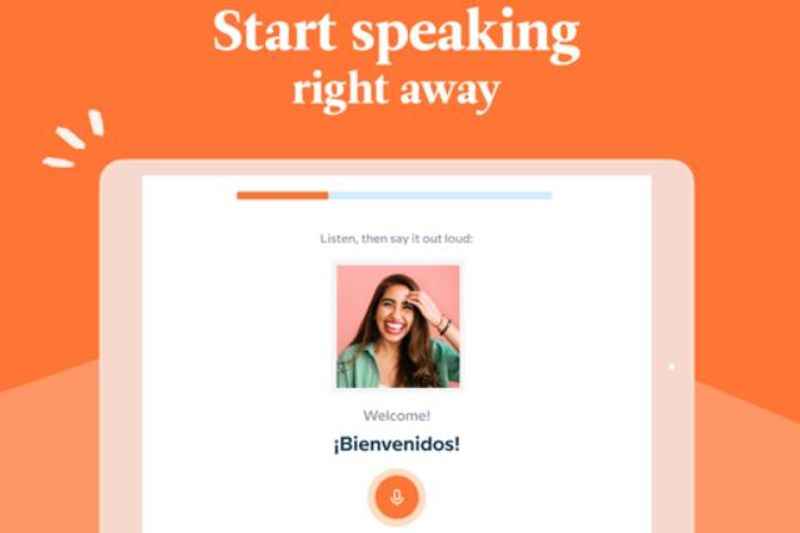
The lessons on Babbel Spanish tend to get better and more varied, though they are not the most engaging. This attitude is reflected in many Babbel reviews.
Babbel will teach you the basics of any of its languages with the right amount of study time and effort. After all, Babbel courses have been designed by professional linguists.
However, fill-in-the-blank exercises, word-match games, and speech repetition are not the most appealing way to learn a language. Nor the most interactive or innovative.
Also, if you choose Babbel Spanish, specifically Castilian Spanish (Spanish from Spain), not Mexican Spanish (which is the other Spanish course offered by Babbel) you will find that the accent of the speaker at this very early stage of the course is clearly Latin American!
This is not a huge problem, but it could be for someone thinking of signing up for a Babbel subscription specifically for Castilian Spanish.
In most of Spain (all regions except the South and Canary Islands) the c is pronounced like a th. So, gracias is pronounced gra-thee-as. When asked to repeat gra-see-as, it can be a little confusing.
Learning Grammar with Babbel
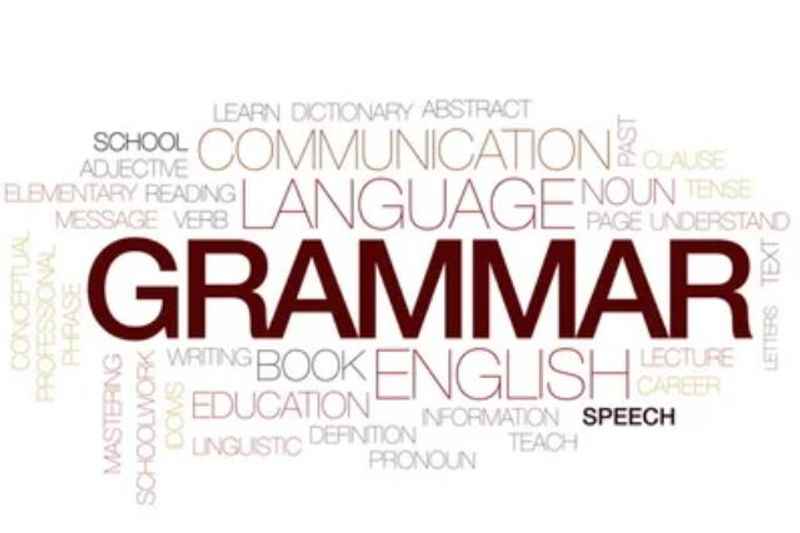
In addition to the exercises mentioned above in the lesson section, Babbel has a range of grammar exercises. This includes filling a verb table in with the right type of Spanish verb conjugation.
This may not be the most fun activity ever, but it does help you to learn the basics, as a beginner.
Understanding grammar is important. Not necessarily to speak a foreign language, but definitely to master it.
Is Babbel Suitable for All Types of Language Learners?
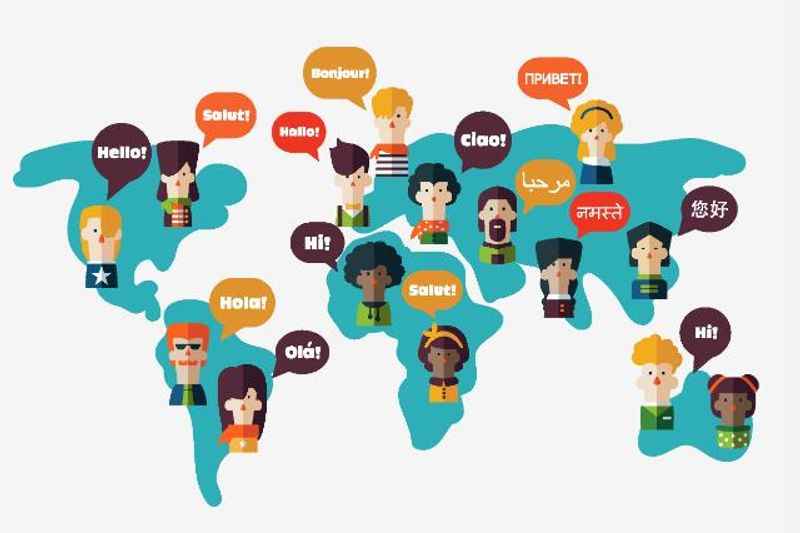
Babbel is definitely best suited to beginners who are trialing a new language, rather than learning at an advanced level.
Whilst Babbel does not state this anywhere on its site or market itself in this way, far more of its content is weighted at the beginner/intermediate level than at the advanced level, which shows us who is using the app more than anyone.
In fact, there really isn’t a lot of content at all for advanced learners. Babbel Spanish, for example, has 9 early level or beginner courses,4 intermediate courses, 3 independent courses, and 1 advanced course.
If you already speak good Spanish, you probably wouldn’t see value in paying for a subscription just to take upper intermediate and advanced courses.
This brings us to the next important point, which is perhaps the most important part of this Babbel review: How much does Babbel cost?
Babbel Pricing

Babbel’s pricing is extremely competitive and it is without doubt one of the cheapest ways to learn a language online.
The cost depends on the number of months you sign up for, ranging from$14.95 on a one-month plan to $89.40 on a yearly subscription.
You can also sign up for a 3 and 6-month subscription plan. The cost is the same for all languages and you can find them here.
Note that this provides access to one language, not multiple (i.e. if you wanted to learn Spanish and French at the same time you would need separate subscriptions).
Final Thoughts - Is Babbel Worth the Money?

To summarize this Babbel review, there is no doubt that Babbel will help you to learn a foreign language. Can it take you from complete beginner to ultimate fluency? That might be difficult.
That said, it doesn’t claim to. This is reflected in the number of courses available to beginners compared to intermediate and advanced speakers.
With its latest feature, Babbel Live, Babbel is arguably better than its competitors, like Duolingo. It offers language learners a clear and simple introduction to language learning with evenly weighted vocabulary, grammar, and topic-related content.
Babbel is an excellent supplemental resource but it should not be the only method you use to learn a language and it is not perfect.
It does not live up to the hype created by a large marketing budget and it would do well to introduce important Asian languages to its list, namely Mandarin Chinese and Japanese, both of which are on Memrise and Pimsleur. On the other hand, using Babbel will definitely help you.
Other Resources to Use with Babbel
Private, one-to-one tuition is still not available through Babbel; to supplement your study with this method it is a great idea to check out italki (tutor marketplace) and Baselang (access to unlimited private Spanish lessons and their online materials for $149 p/month).
By all means, learn a language with Babbel, but be sure to use free online resources (free PDFs, Youtube, Podcasts, etc) as well as tutor help if you can afford regular practice with a native speaker through italki.
Babbel Alternatives

Now that we have delved deep into the pros, cons, and features of Babbel, let's address some alternative language-learning programs.
Babbel vs Preply
If you are looking for a tutor rather than a language learning app then consider Preply. Preply is a marketplace where students from all over the world can find one-on-one online tutors for personalized learning programs.
It is very similar to italki, with the same common goals and the same main features. Preply also contains an in-built classroom which enhances the quality and efficiency of lessons for both tutors and students.
Babbel vs Rocket Languages
Rocket Languages is a software-focused language-learning app that uses audio lessons, interactive exercises, and readings to get you to a conversational level in a foreign language. Through its structured and proven successful process, you will begin to understand more about the language you are learning quite quickly.
Babbel vs Pimsleur
With its tried and tested method, Pimsleur is one of the most effective and slickest language-learning resources of its type. It’s a great way to learn a language by yourself, placing a strong emphasis on aural and pronunciation skills, with less detail around grammar, reading, or writing than many other language courses.
Whilst you will not have face-to-face interaction with a tutor like on italki, the Pimsleur app, and desktop versions are smart, user-friendly, and packed with a variety of content that balances vocabulary, daily scenarios, and culture in a way that is digestible even for complete beginners. Pimsleur offers all users a Free 7 Day Trial.
FAQs Related to This Babbel Review
Finally, let's take a look at some frequently asked questions regarding Babbel.
Is Babbel actually effective?
Babbel can be effective for language learning as it offers interactive lessons, practical vocabulary, and speech recognition. However, effectiveness varies based on individual learning styles and dedication.
You will learn basic vocabulary, such as words and phrases useful for travel, by repeating words in a spaced repetition style. Babbel offers podcasts as well and its courses were designed by language experts.
Is there anything better than Babbel?
Several language learning apps and methods are available to learners, and whether they are "better" than Babbel comes down to various factors. The effectiveness of each app and resource depends on personal preferences, learning styles, and objectives.
What is the success rate of Babbel?
Babbel's success rate is challenging to quantify as it depends on learners' commitment, prior learning experience, and usage consistency. Users who stay motivated and actively engage with the platform are more likely to achieve significant progress.
Summing Up: Babbel Review - A Good Resource for Beginners
Now, let's wrap this up. Is Babbel good for beginners? Yes, it is. Will it make you fluent? Probably not. Babbel is not the best tool for learners at the intermediate and advanced levels.
Babbel's courses teach vocabulary and grammar to an intermediate level if you stick with Babbel, and you will be able to speak well on your travels in whatever target language you choose. This is perfect for casual learners.
Babbel works to build a solid foundation, but fluency requires extensive practice, immersion, and exposure to native speakers. Complementing Babbel with other learning resources, conversations, media, and cultural experiences increases your prospects.







